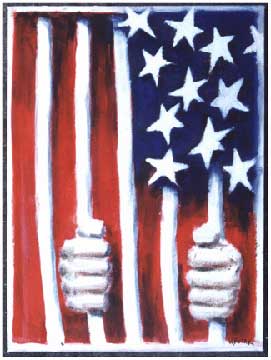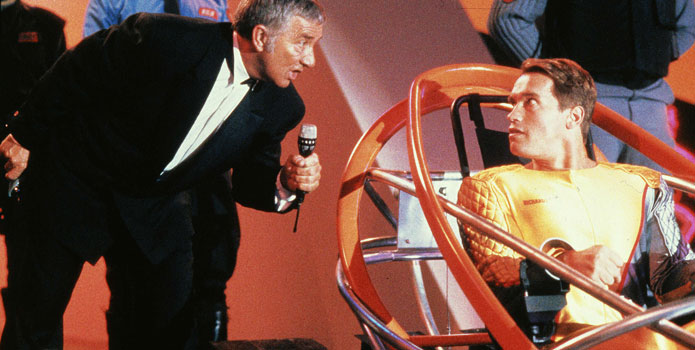
In The Guardian Jill Filipovic examines the national shame that is our private prison-industrial complex. “Imprisoning that many people, most of them for non-violent offenses, doesn’t come cheap, especially when you’re paying private contractors…who are doing quite well living off of American corporate welfare -– at the expense of the American taxpayer.” $50 billion a year — that funds a lot of stadium.
This article was found, by the way, in Slate‘s discussion of Sesame Street’s new incarceration kit, which helps explain to 3-8-year-olds that their parent has gone to jail. “That this even has to exist in the first place shows how much pointless damage our prison system does not just to people who are caught up in the overly punitive, often racially biased justice system, but also to their families.”
It’d be nice to say this fiasco is on the national agenda, but, Jim Webb’s efforts in 2009 and some green shoots earlier in the year notwithstanding, Congress and the Obama administration, for all their talk of belt-tightening, seem pretty content with this ridiculous status quo. (One key reason: felons can’t vote.) But, hey, you know who they still don’t put in jail these days? Wolves of Wall Street. So there’s that.



